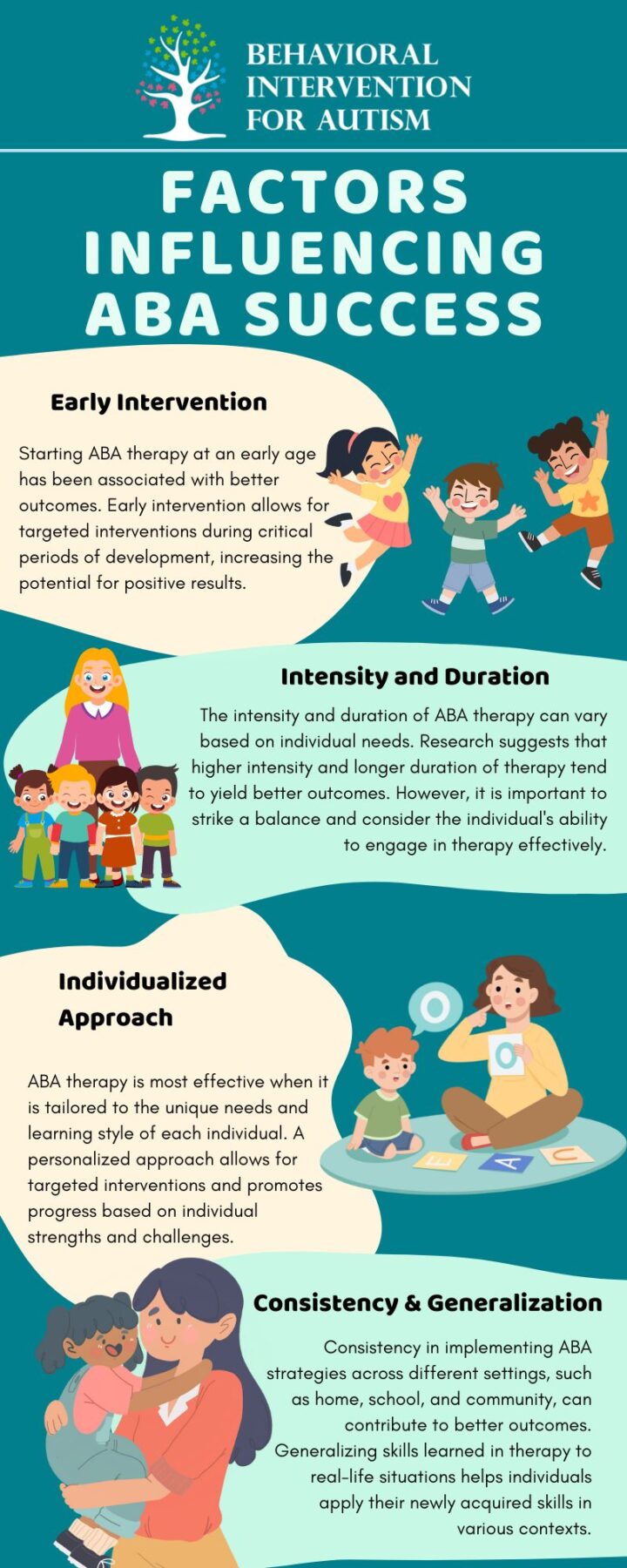Understanding the Impact of Behavior Therapy on Mental Wellness
Behavioral treatment plays a necessary function in enhancing psychological health and wellness and wellness. It utilizes organized methods to determine and alter adverse habits and assumed patterns. By fostering self-awareness and emotional durability, individuals can develop healthier coping techniques. However, the nuances of its effectiveness across various mental health and wellness concerns and its combination right into everyday life continue to be complex. Discovering these elements discloses the extensive influence Behavioral Treatment can carry general high quality of life.
The Principles of Behavior Therapy
Behavioral Therapy is grounded in the principles of discovering theory, stressing the duty of observable behavior in psychological health and wellness therapy. This strategy is based on the property that habits are found out and can be unlearned or changed through appropriate interventions. It focuses on the interaction between feelings, activities, and ideas, positing that transforming maladaptive habits can bring about improved mental and emotional health.
Central to this therapy is the principle of reinforcement, where positive or unfavorable stimulations affect habits change. In addition, Behavioral Therapy focuses on measurable outcomes, intending to track progress through visible adjustments. It likewise identifies the importance of context, promoting for an understanding of ecological factors that contribute to behavioral patterns. By using these concepts, Behavioral Treatment addresses a large range of mental wellness problems, making it a flexible and reliable treatment option for people seeking to improve their mental health and wellness via structured behavior modifications.
Typical Strategies Made Use Of in Behavior Therapy
Common techniques used in Behavioral Treatment play a vital function in addressing numerous psychological health problems. This conversation will highlight cognitive behavioral methods, direct exposure therapy approaches, and support techniques, each contributing uniquely to the therapeutic procedure. Recognizing these methods can boost understanding of exactly how Behavior Therapy successfully advertises psychological health.
Cognitive Behavioral Methods
While numerous approaches exist within the domain name of treatment, cognitive behavioral strategies stand apart for their organized techniques targeted at attending to adverse thought patterns and actions. These methods generally involve recognizing distorted cognitions, testing these ideas, and replacing them with even more well balanced perspectives. Typical strategies include cognitive restructuring, where individuals discover to recognize and modify their automated unfavorable thoughts, and behavior activation, which encourages involvement in positive tasks to battle sensations of anxiety. In addition, mindfulness techniques are often incorporated to improve recognition of ideas and feelings without judgment. By systematically resolving these strategies, individuals can establish much healthier coping mechanisms, eventually causing enhanced mental health and durability versus numerous psychological difficulties.
Exposure Treatment Approaches
Exposure treatment techniques are commonly identified as reliable methods within Behavioral Treatment, especially for dealing with anxiety disorders, anxieties, and post-traumatic tension problem (PTSD) These techniques entail steady exposure to feared stimulations, allowing individuals to face and process their worries in a regulated atmosphere. Usual techniques include methodical desensitization, where patients are slowly revealed to anxiety-provoking scenarios while practicing leisure strategies. One more method is flooding, which involves individuals in their anxieties for an extensive period, usually leading to quick desensitization. Online fact exposure treatment has actually additionally gotten popularity, making it possible for clients to engage with online environments that simulate their fears. Overall, direct exposure therapy techniques intend to lower avoidance actions and assist people develop coping approaches, ultimately improving psychological health and wellness and health.
Reinforcement Methods Discussed
Reinforcement approaches play an important duty in Behavioral Therapy, employing various methods to encourage desired behaviors and lessen unwanted ones. Favorable reinforcement includes awarding an actions, making it more probable to persist. This can consist of verbal appreciation, symbols, or concrete benefits. Negative support, on the other hand, entails eliminating an unpleasant stimulus when a wanted habits takes place, thereby increasing its regularity. Punishment approaches may likewise be made use of, where an unfavorable repercussion complies with an unwanted habits to minimize its incident. In addition, forming methods slowly reinforce closer estimates to the desired behavior. By applying these methods methodically, therapists can effectively customize behavior patterns, advertising mental health and enhancing total wellness for individuals looking for support in handling their conditions.
Efficiency of Behavior Treatment for Various Mental Health And Wellness Issues
Behavioral Treatment has shown considerable effectiveness in treating various mental health and wellness issues, particularly anxiousness conditions and depression. Research suggests that individuals undergoing Behavior Treatment commonly experience significant renovations in handling their signs and symptoms. This discussion will check out the certain success rates connected with these therapies for anxiousness and anxiety.
Anxiousness Conditions Therapy Effectiveness
Stress and anxiety conditions can substantially harm everyday performance, study regularly shows the effectiveness of behavior therapy in easing symptoms. Numerous types of Behavior Treatment, consisting of cognitive-behavioral treatment (CBT), have shown significant success in treating stress and anxiety problems such as generalised anxiety condition, social stress and anxiety disorder, and panic attack. These therapies concentrate on recognizing and customizing negative thought patterns and actions, equipping people with dealing approaches to manage their anxiety. Research studies suggest that individuals typically experience a reduction in anxiety degrees, improved coping mechanisms, and boosted overall lifestyle following therapy. Additionally, the structured nature of Behavioral Therapy enables quantifiable progression, making it a preferred selection among mental health and wellness specialists for addressing anxiety-related issues efficiently.
Clinical Depression Management Success Fees
Anxiety conditions and anxiety typically co-occur, causing overlapping treatment methods, specifically in the domain of Behavior Treatment. Study suggests that cognitive-behavioral treatment (CBT), a noticeable form of Behavior Treatment, has actually demonstrated significant success in handling clinical depression. Researches reveal that approximately 60-70% of people getting CBT for depression experience a notable reduction in signs and symptoms. This efficiency is connected to CBT's organized strategy, which furnishes individuals with coping mechanisms and cognitive restructuring strategies. Furthermore, the mix of Behavioral Treatment with pharmacotherapy can improve success rates, offering a thorough strategy for those dealing with extreme anxiety. In general, Behavior Treatment remains a crucial intervention for enhancing mental wellness results in individuals dealing with clinical depression.
The Function of a Specialist in Behavioral Therapy

Therapists offer as overviews and facilitators in the technique of Behavioral Treatment, helping customers navigate their challenges with structured treatments. They utilize numerous methods, such as cognitive restructuring and direct exposure therapy, to help clients in recognizing and changing maladaptive behaviors and thought patterns. By establishing a encouraging and non-judgmental atmosphere, specialists promote trust fund, which is vital for effective restorative interaction.
Therapists likewise inform customers regarding the principles of Behavioral Therapy, enabling them to recognize the rationale behind certain techniques. This knowledge equips customers to take an active function in their therapy. Additionally, therapists check development, adjusting treatments as needed to guarantee the most effective end results. They give comments and inspiration, strengthening positive changes and helping clients create coping approaches for future difficulties. In general, the therapist's duty is critical in leading customers towards boosted psychological health More Help and wellness and boosted wellness via structured healing methods.

Long-Term Conveniences of Behavioral Therapy
While many individuals look for Behavioral Therapy to deal with instant obstacles, the long-lasting advantages extend much past preliminary sign alleviation. One substantial advantage is the advancement of coping techniques that improve psychological resilience, enabling people to navigate future stresses better - ABA Therapy. Customers typically report improved self-awareness, which fosters a greater understanding of their habits and thoughts, helping with healthier decision-making procedures
On top of that, Behavior Treatment can bring about continual improvements in interpersonal partnerships. By learning reliable communication and analytical skills, individuals might experience deeper links with others, reducing feelings of seclusion. Furthermore, numerous find that these therapeutic methods contribute to an aggressive approach to psychological health and wellness, enabling them to handle potential setbacks before they rise.
Eventually, the lasting impact of Behavior Treatment can cause a more fulfilling life, defined by boosted emotional security, boosted partnerships, and a greater sense of overall health.
Integrating Behavioral Treatment Into Every Day Life
Building on the long-term benefits of Behavioral visit here Therapy, incorporating its principles into every day life can even more boost psychological strength and well-being. People can begin by incorporating easy techniques, such as cognitive restructuring, which involves challenging unfavorable ideas and replacing them with more positive choices. Establishing a routine that consists of mindfulness techniques, like meditation or deep breathing, can likewise foster awareness of behaviors and feelings.
In addition, setting achievable goals and celebrating small victories can reinforce self-efficacy and motivation. Taking part in normal physical activity not only enhances state of mind but also assists preserve the technique discovered through therapy. Additionally, cultivating encouraging partnerships and open interaction can offer vital psychological support. By actively using these Behavioral Therapy techniques, individuals can grow a healthier way of thinking, navigate day-to-day challenges better, and add to a general enhanced quality of life.
Regularly Asked Inquiries

How Much Time Does Behavioral Treatment Usually Last?
Behavior Therapy typically lasts from a few weeks to a number of months, depending upon private demands and certain problems being resolved. Sessions normally take place weekly, with development evaluations assisting the duration of the treatment.
Can Behavior Modification Be Done Online?
Behavior Therapy can without a doubt be conducted on-line, utilizing video clip conferencing platforms. This method offers flexibility and availability, allowing people to involve with their specialists from the comfort of their homes, keeping therapeutic continuity.
What Should I Expect in My Initial Session?
In the initial session, customers can expect an initial discussion, analysis of their issues, and establishment of therapy goals - ABA Therapy. The therapist may explain the procedure and deal with any kind of concerns to develop a comfortable environment
Exist Any Negative Effects of Behavioral Therapy?
Behavior Treatment normally has few side effects, however some people might experience temporary pain, emotional distress, or raised anxiety as they confront tough ideas and habits. These reactions normally decrease as treatment progresses and coping methods develop.
How Do I Locate a Qualified Behavioral Specialist?
To discover a certified behavioral specialist, people need to look for suggestions from healthcare carriers, examine on the internet directory sites, and confirm credentials. Furthermore, reviewing reviews and scheduling first examinations can assist analyze compatibility and knowledge before choosing.
Direct exposure therapy techniques are commonly recognized as effective methods within behavioral treatment, particularly for dealing with anxiety problems, fears, and post-traumatic stress and anxiety problem (PTSD) Numerous forms of behavioral therapy, consisting of cognitive-behavioral treatment (CBT), have actually shown considerable success in dealing with anxiety disorders such as generalised stress and anxiety problem, social anxiety condition, and panic disorder. Research study shows that cognitive-behavioral therapy (CBT), a famous form of behavior therapy, has demonstrated considerable success in taking care of clinical depression. While numerous people look for behavioral therapy to attend to instant obstacles, the long-term advantages expand much beyond first sign alleviation. Behavior treatment normally has few side results, but some individuals may experience short-term discomfort, psychological distress, or raised anxiety as they challenge view it now difficult thoughts and behaviors.